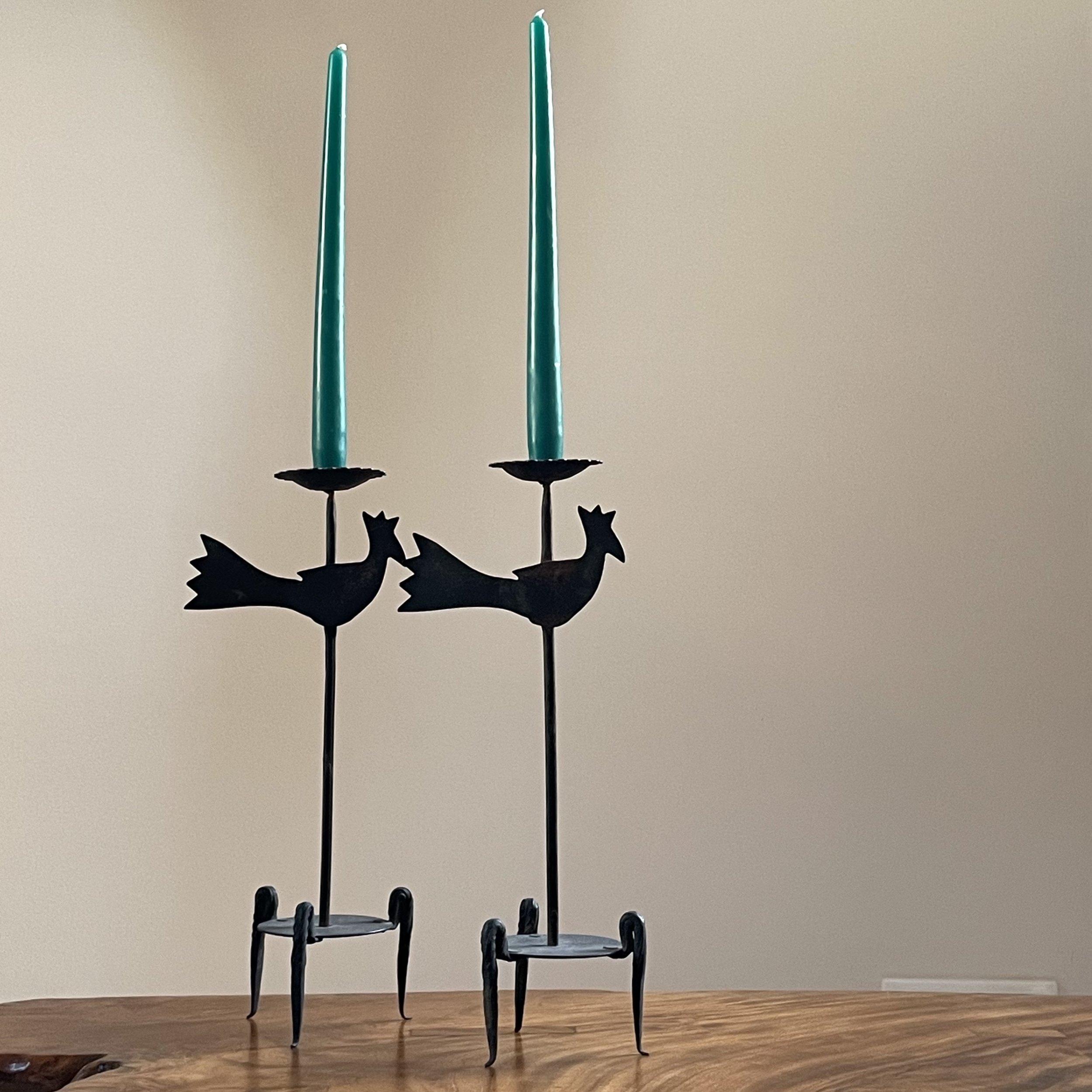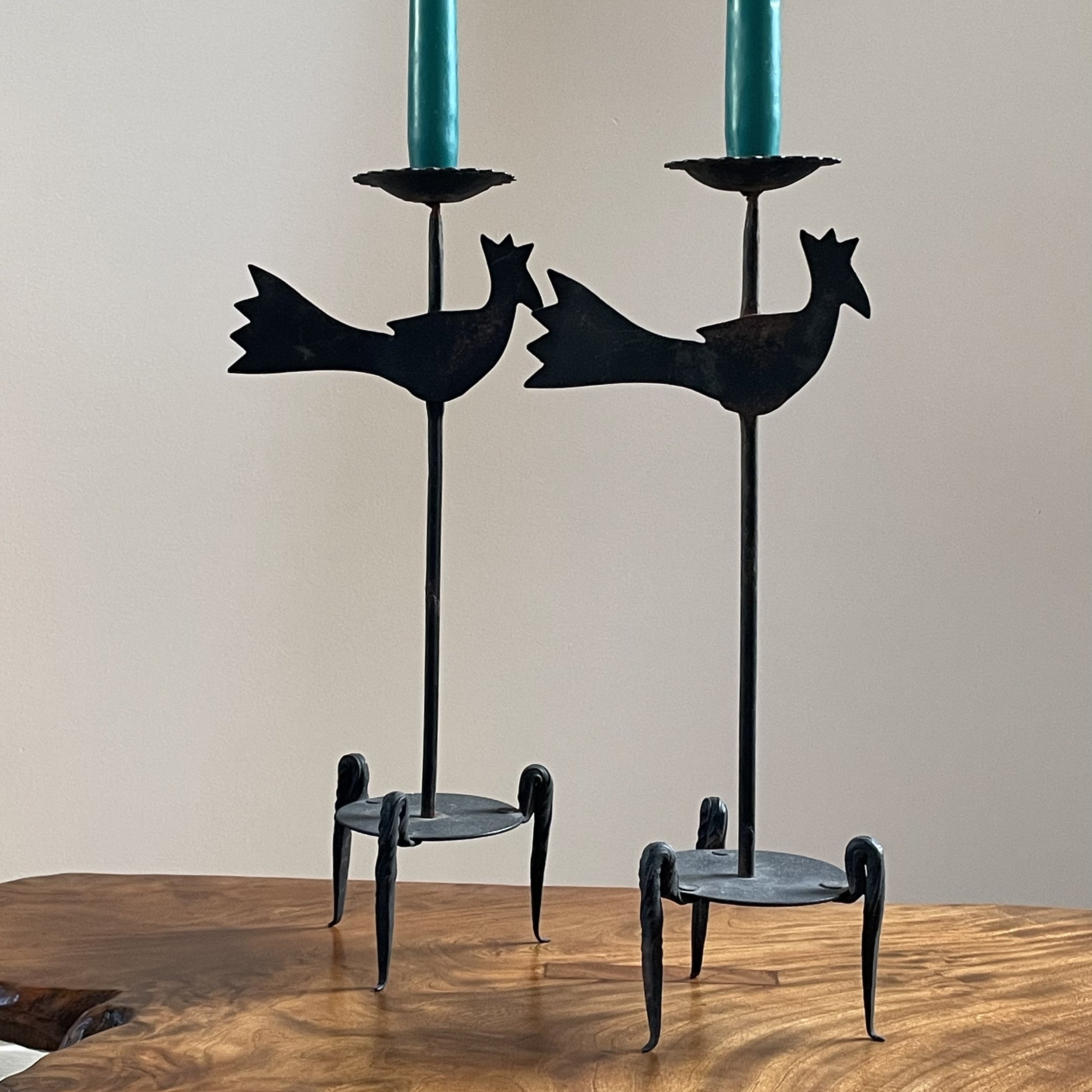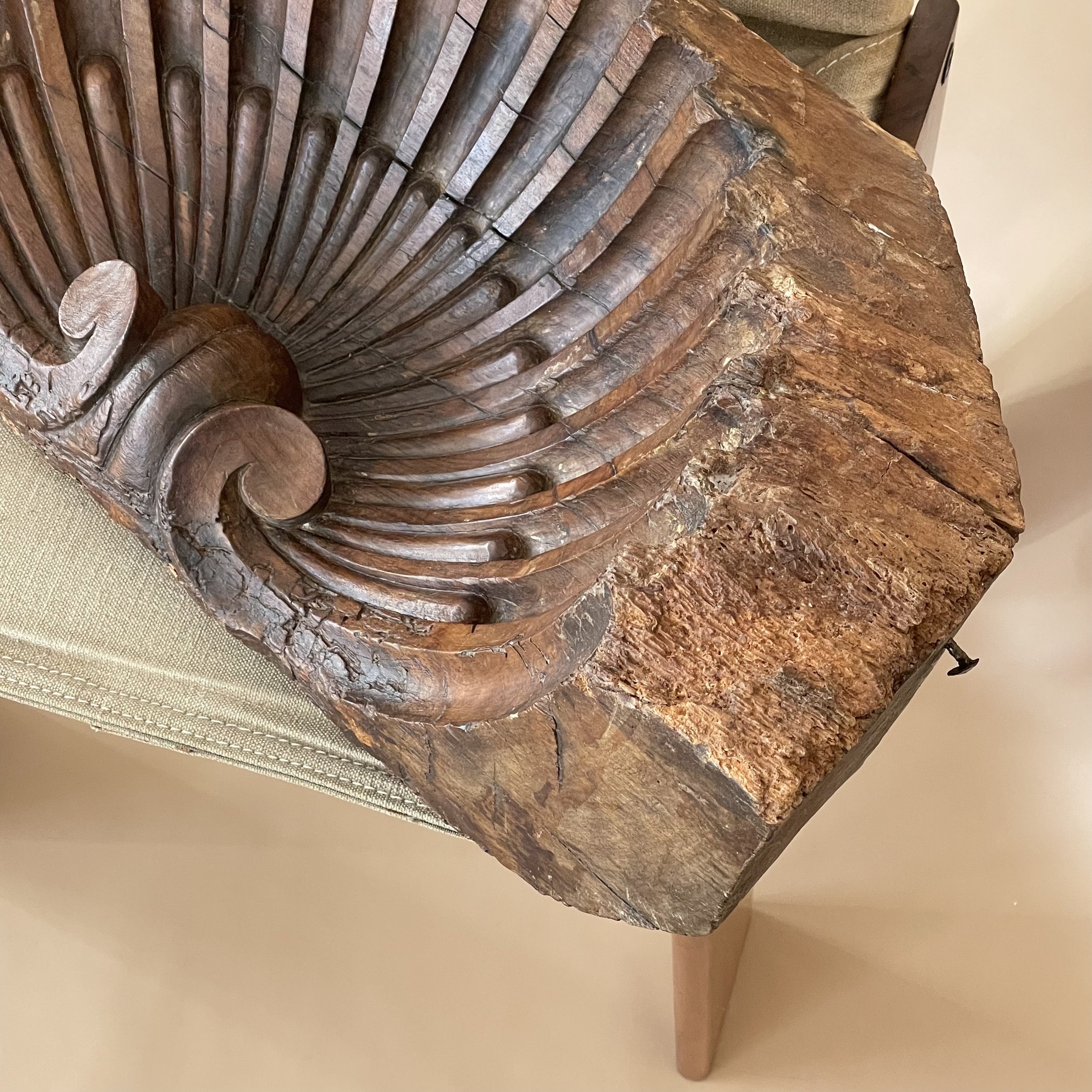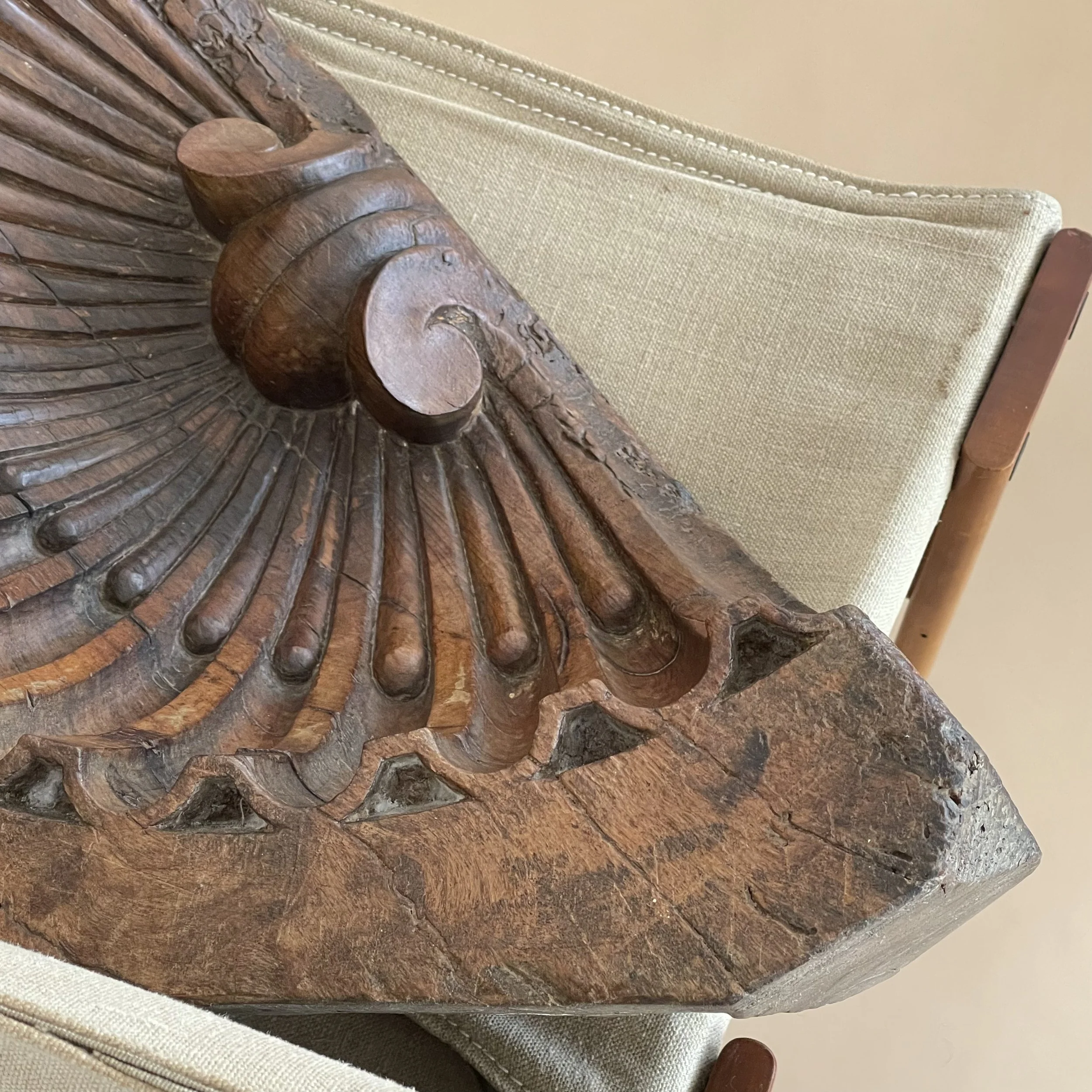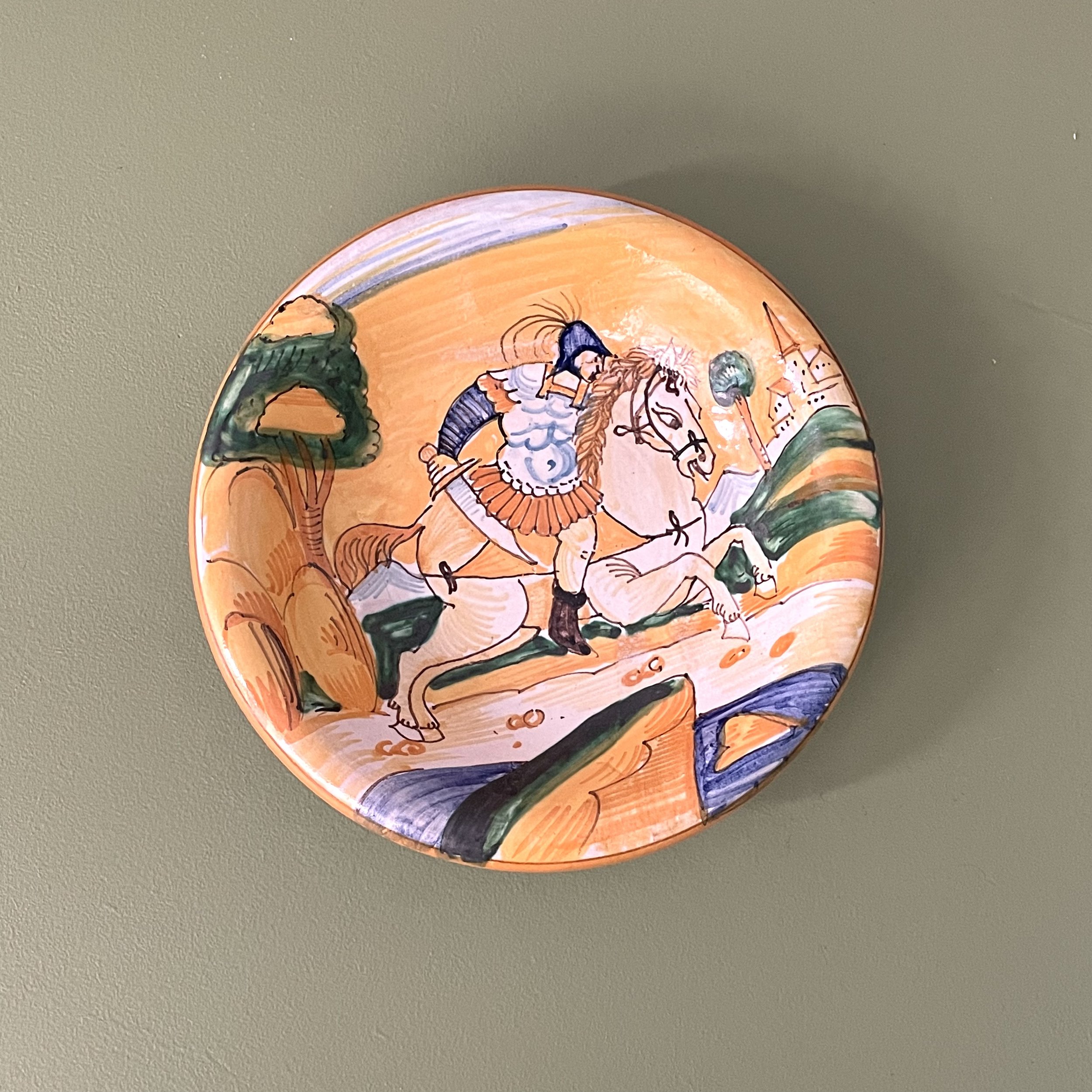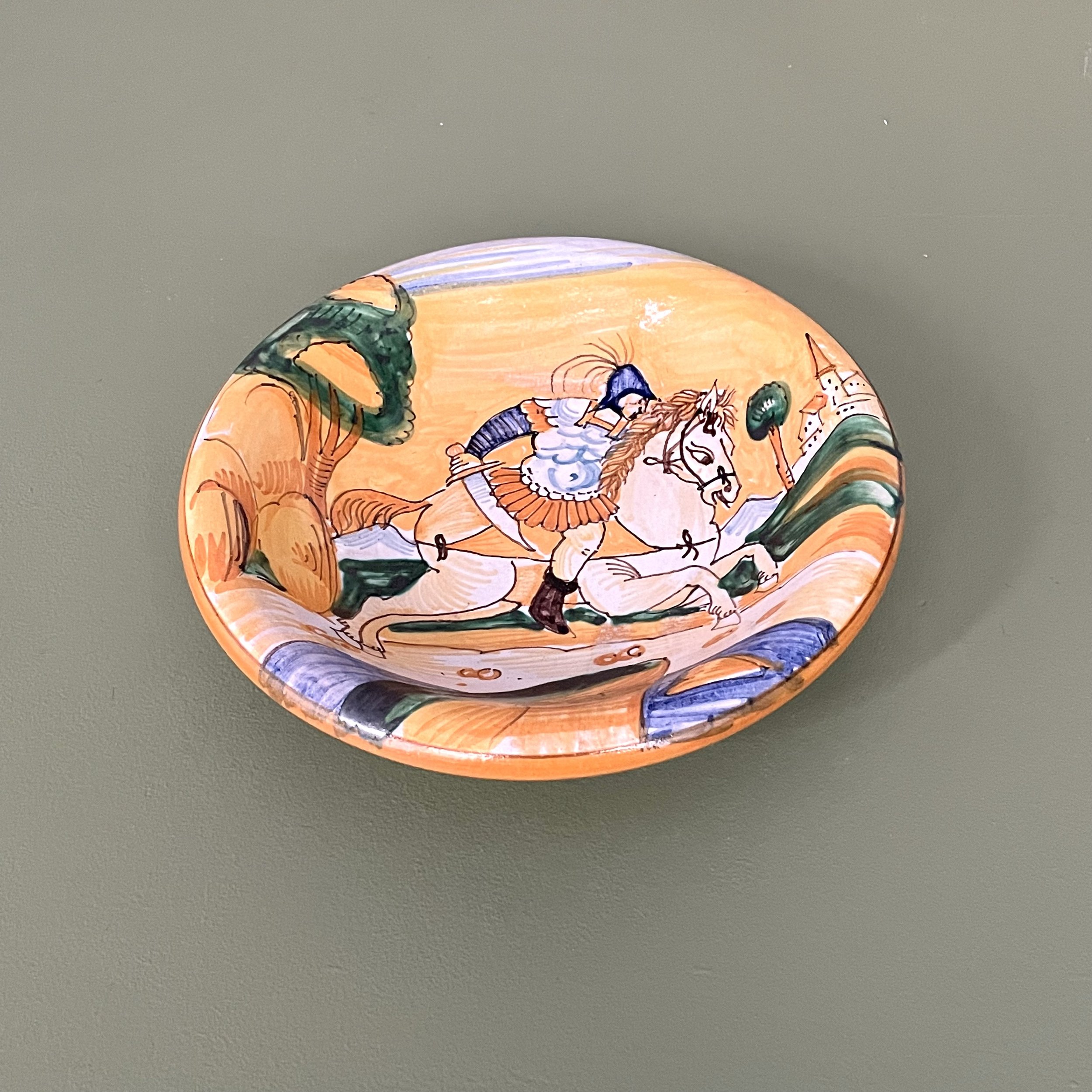Vase boule grès Sybesma
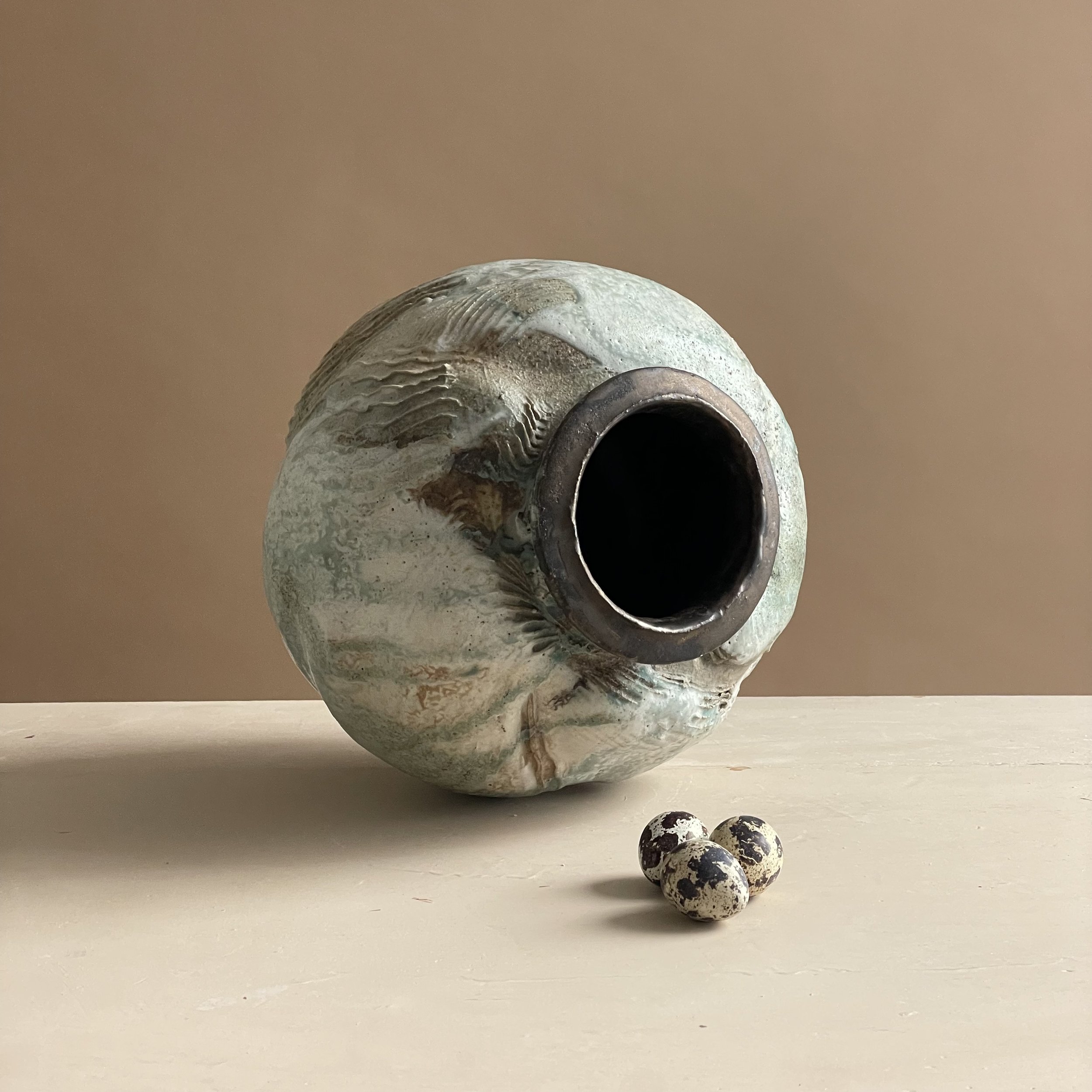

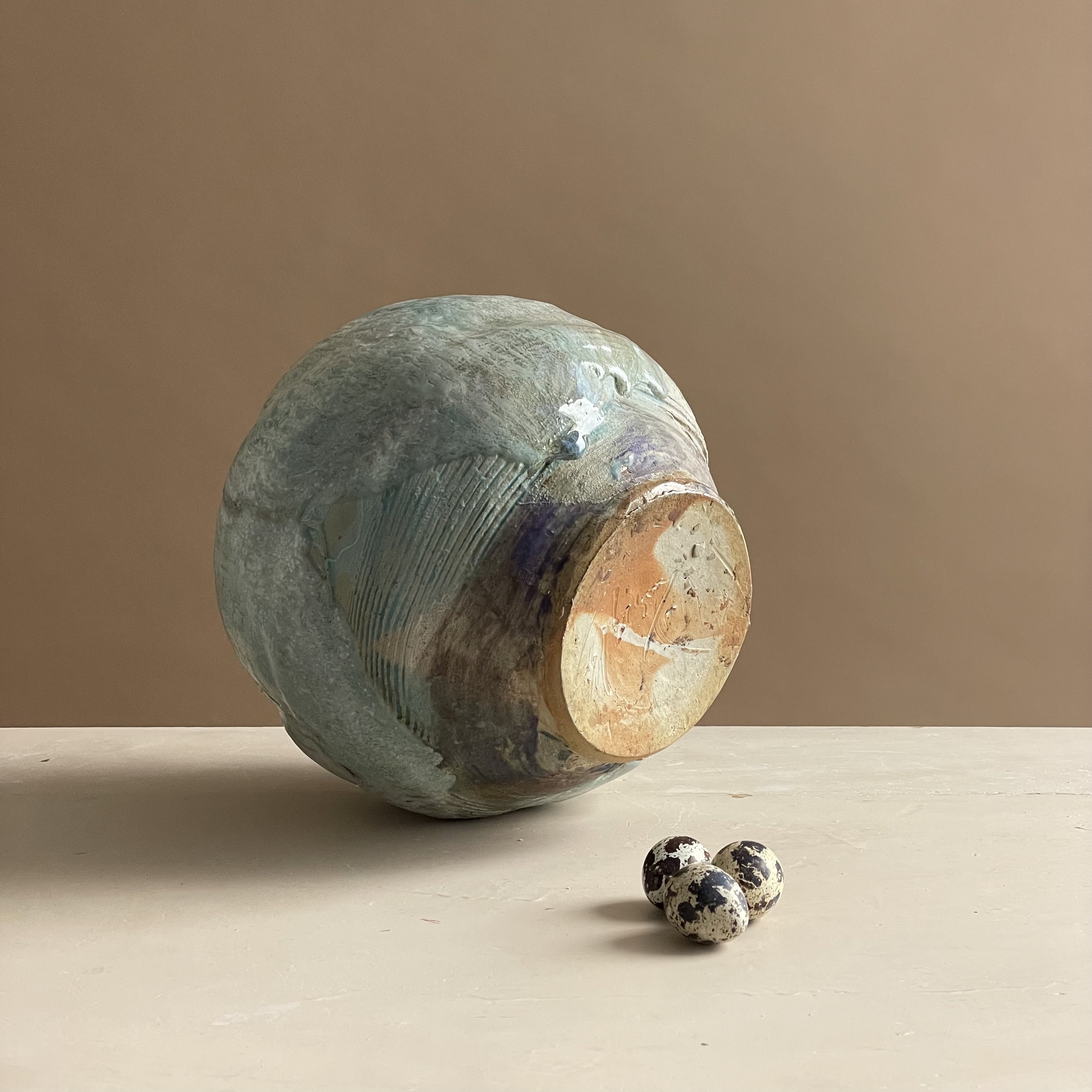
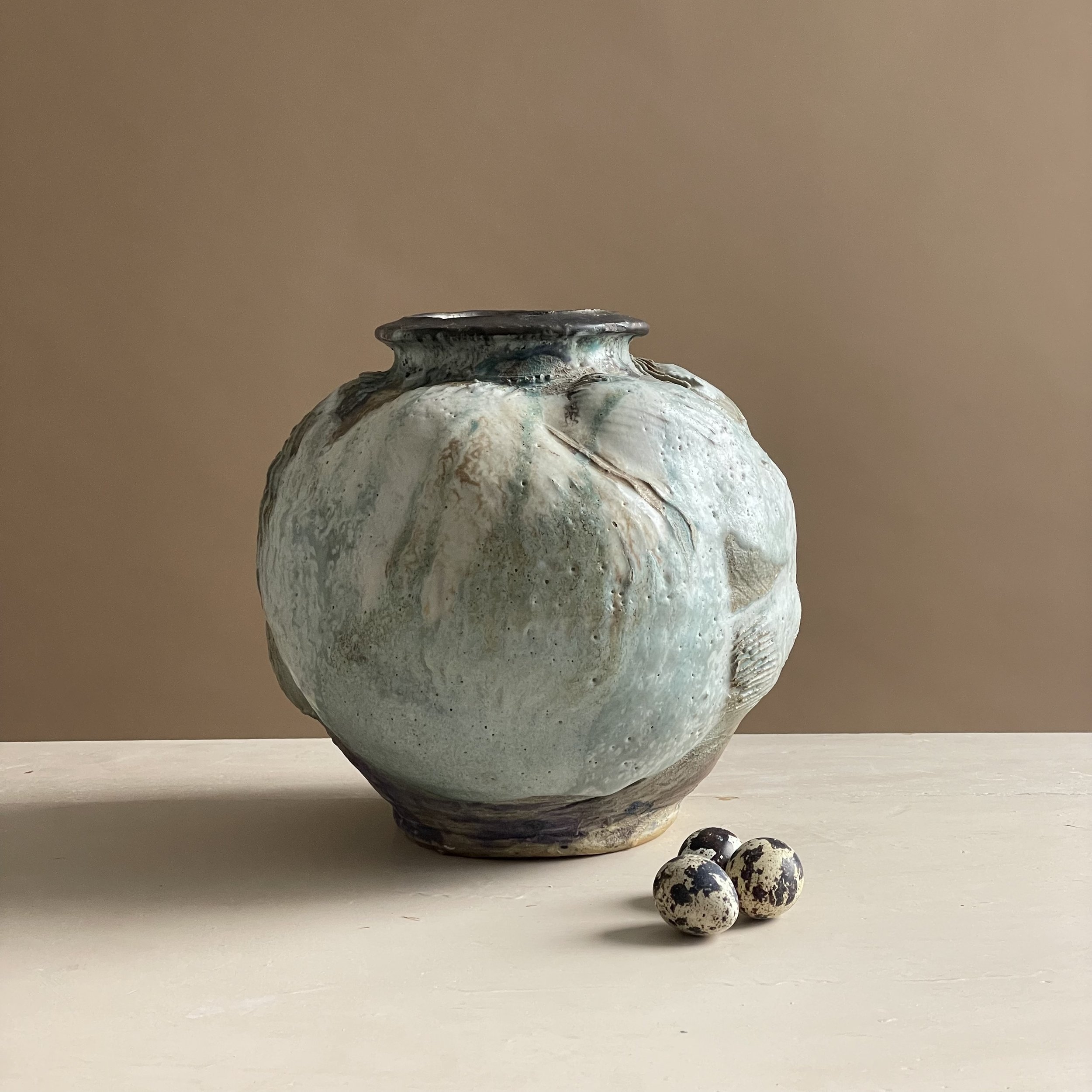
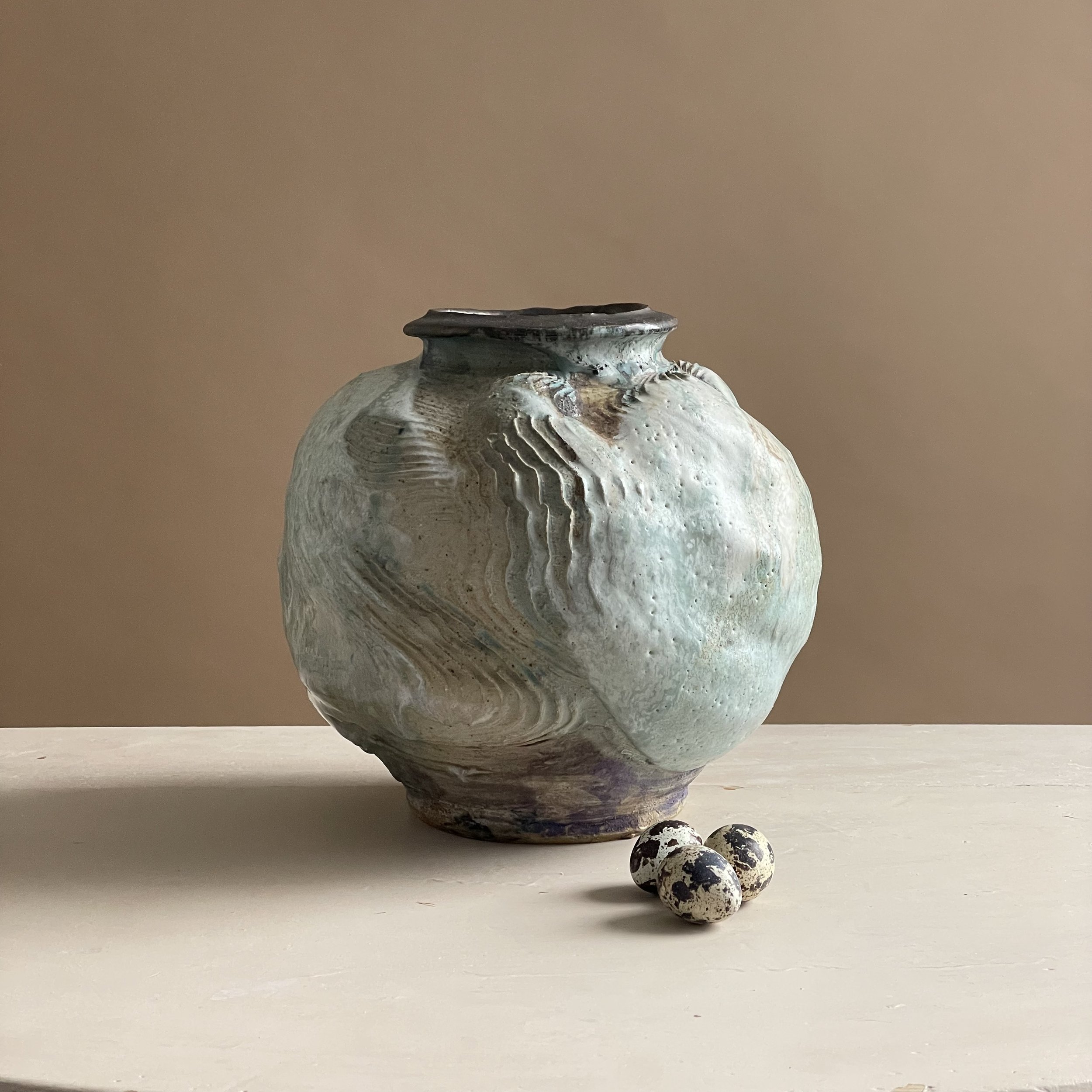
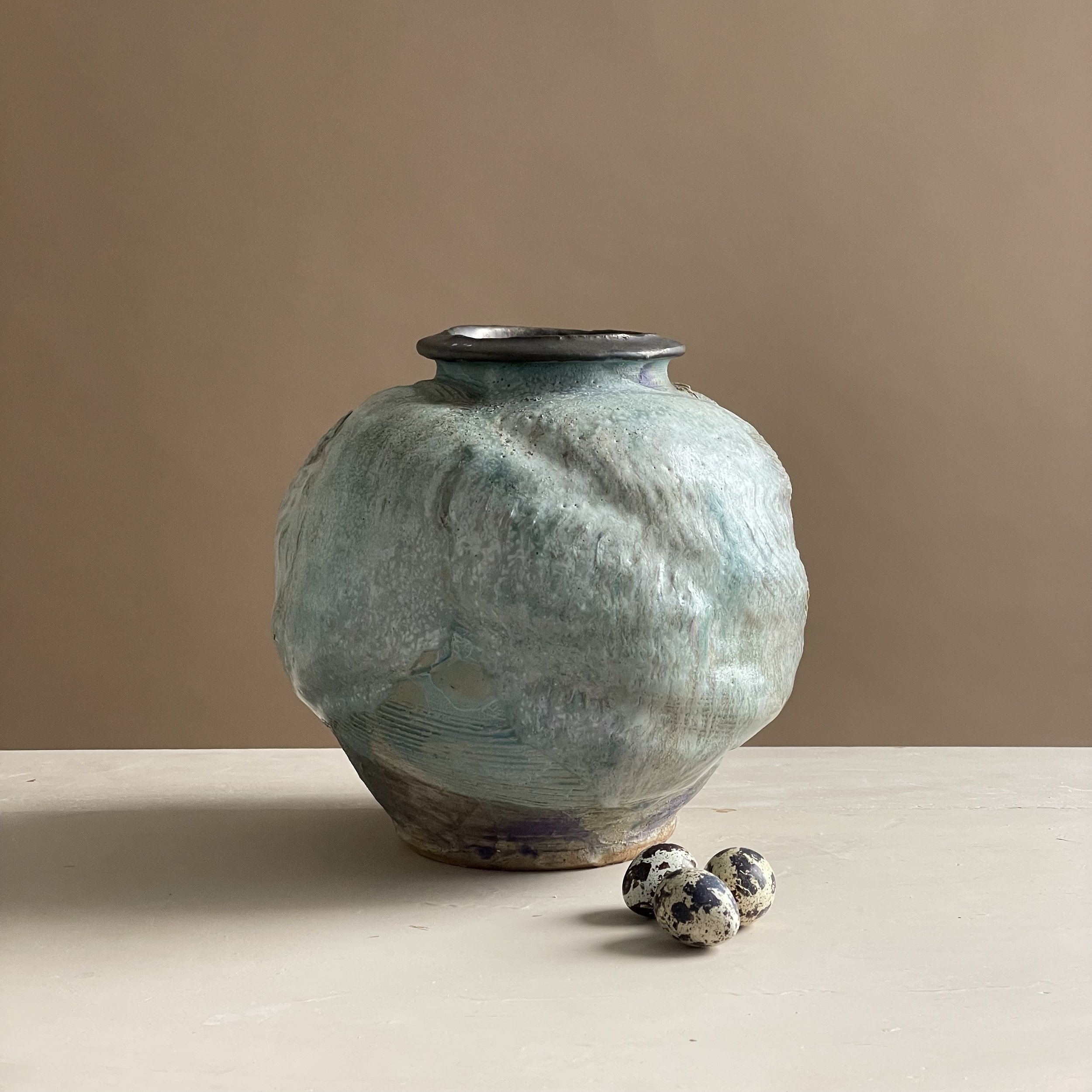
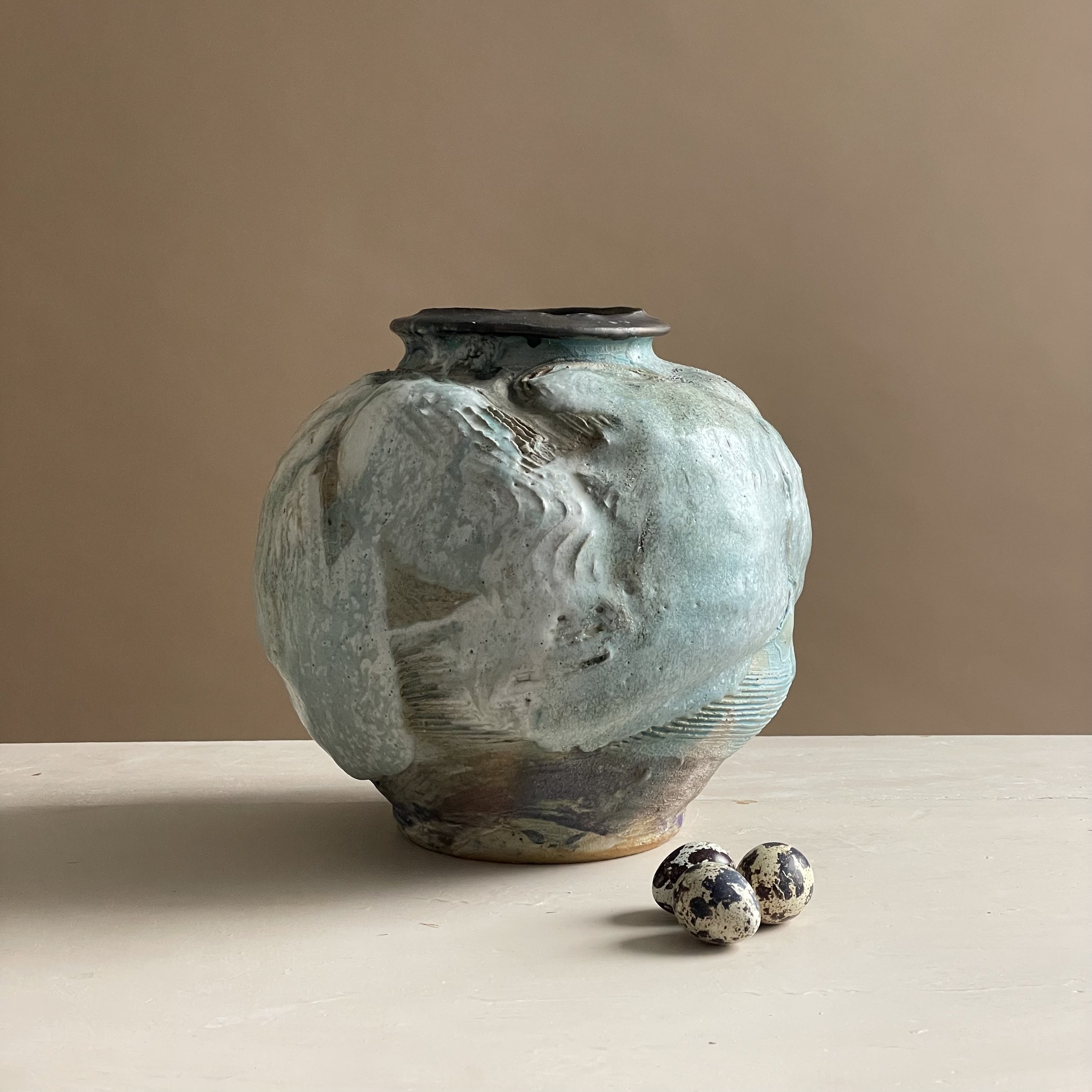
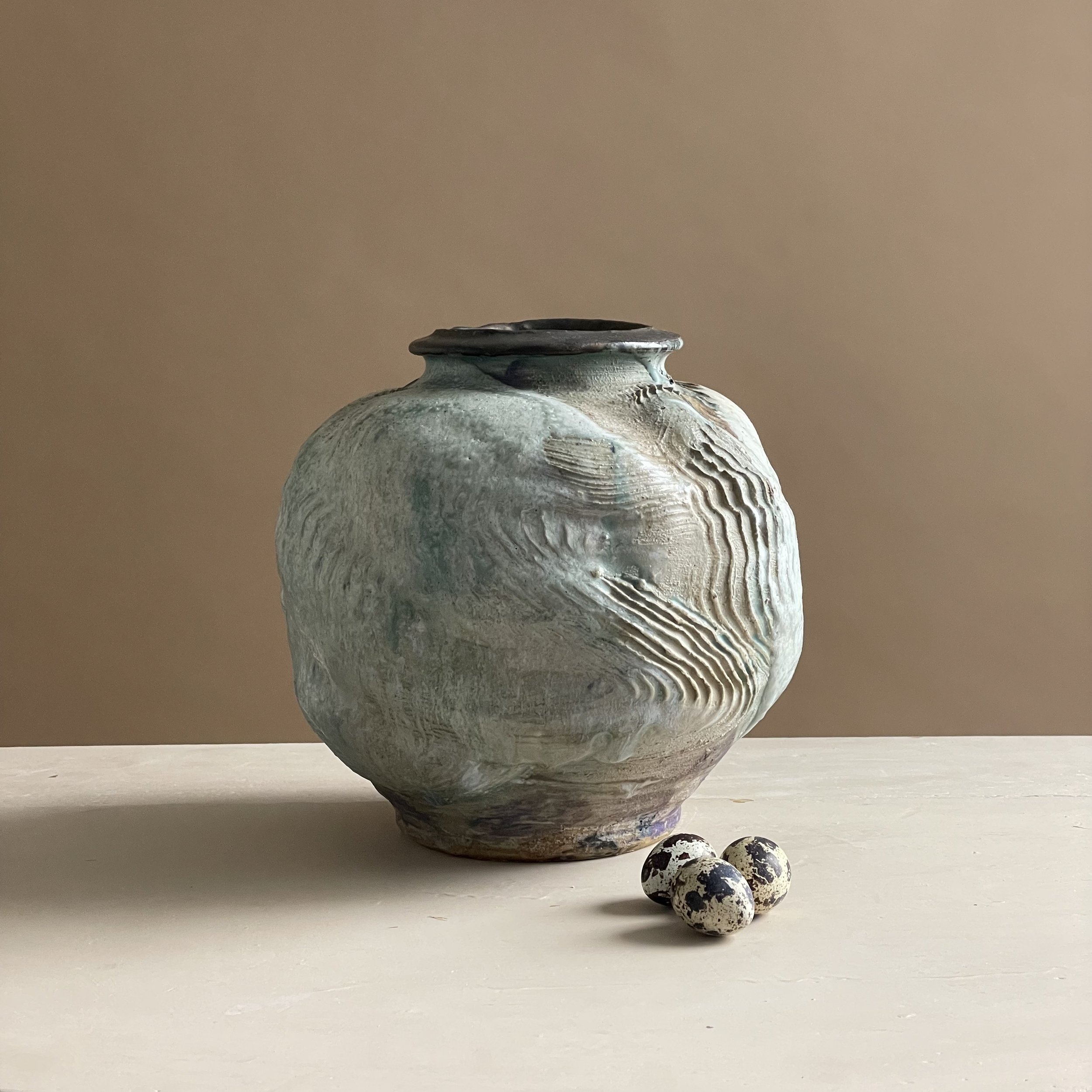
Vase boule grès Sybesma
Georges Sybesma (né en 1960)
Vase boule en grès cuisson au bois et émaux de cendres
Signé
H 21 x diam 21 cm
Excellent état
Georges Sybesma (born 1960)
Wood-fired & Ash-glazed stoneware ball vase
Signed
H 21 x diam 21 cm
Excellent condition
Georges Sybesma, born in 1960 in the Netherlands, began making pottery with his mother, and from an early age practiced wild firing by digging kiln holes in the forest. He then trained with leading French ceramists, in particular Michel Gardelle, before moving to Saint Sulpice les feuilles to work with Brigitte Pénicaud and Claude Varlan. He then decided to join the association of potters in the village of La Borne, near Bourges. In this historic territory of stoneware and wood firing, he settled opposite the ceramics center and continued his research into large jar throwing and vibrant glazes, thanks to his experience of many wood firings.
His work owes much to an Asian tradition of form, while his approach to surfaces is more akin to the experiments carried out at the beginning of the 20th century by those established in Saint Amand en Puisaye, such as Carriès and his school, who themselves looked to Japan.
Georges Sybesma, né en 1960 aux Pays-Bas commence la poterie auprès de sa mère et pratique dès son plus jeune âge des cuissons sauvages en creusant des trous-fours dans la forêt. Il se forme ensuite auprès de grands céramistes français rencontrant en particulier Michel Gardelle puis en s’installant auprès de Brigitte Pénicaud et Claude Varlan à Saint Sulpice les feuilles. Il se décide ensuite à rejoindre l’association des potiers du village de la Borne, près de Bourges. Sur ce territoire historique de grès et de cuissons au bois, il s’établit face au centre céramique et poursuit ses recherches sur le tournage de grandes jarres et ses émaillages vibrants grâce à son expérience de nombreuses cuissons au bois.
Son travail doit en particulier à une tradition asiatique de la forme tandis que son approche des surfaces s’apparente plutôt aux expérimentations menées au début du XXème siècle par ceux qui étaient établis à Saint Amand en Puisaye tels Carriès et son école qui regardaient eux-mêmes le Japon.



